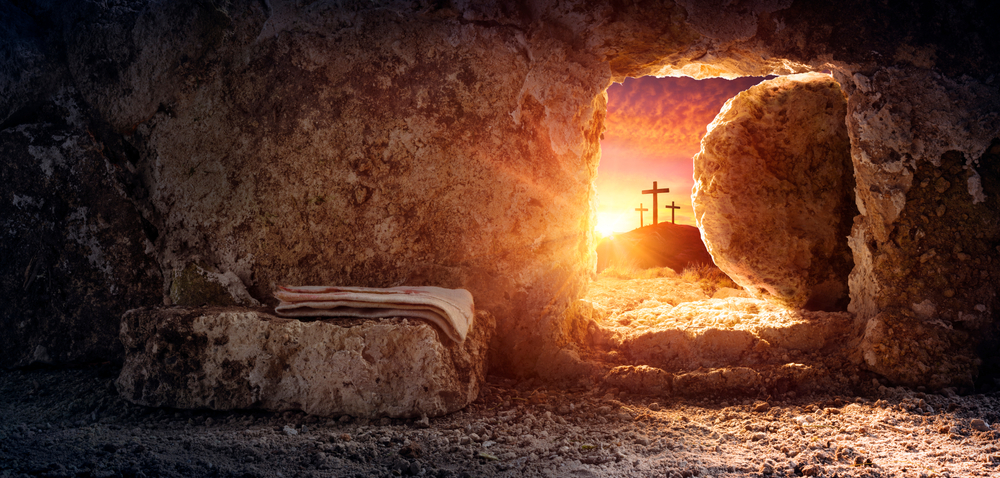Joseph of Arimathea: The Wealthy Man Who Gave Jesus His Tomb
The story of Jesus’ death and resurrection is filled with powerful figures who played key roles, but one man, often overshadowed by others, stands out for his quiet yet extraordinary act of kindness and faith. That man is Joseph of Arimathea, a wealthy and respected member of the Jewish council, who donated his own tomb for the burial of Jesus. His generosity and devotion remain one of the most profound examples of faith in action, a gesture that fulfills prophecy and carries deep spiritual meaning.
Who Was Joseph of Arimathea?
Joseph of Arimathea is introduced in all four Gospels, but his full story often goes unnoticed. He was a prominent member of the Sanhedrin, the Jewish council that played a role in the trial of Jesus. Despite his position, Joseph did not support the decision to condemn Jesus. In fact, he was a secret follower of Jesus, as described in John 19:38, who feared the repercussions of openly showing his loyalty to Christ. His wealth, influence, and standing in the community made his actions even more significant, as they came at great personal risk.
According to the Gospel accounts, Joseph was not just a passive observer of Jesus’ ministry. Mark 15:43 describes him as a man “waiting for the kingdom of God,” implying a deep spiritual longing and hope that aligned with Jesus’ teachings. When Jesus was crucified, Joseph’s faith moved him to step forward in a moment of great courage and reverence for the Savior.
The Gift of a Tomb
After Jesus’ crucifixion, Joseph of Arimathea took an extraordinary step. He approached Pontius Pilate and asked for permission to take Jesus’ body down from the cross and bury it properly. This was no small act—it required boldness to identify himself as someone who cared for Jesus, especially given the danger of associating with a man executed as a criminal.
Once Pilate granted permission, Joseph, along with Nicodemus (another follower of Jesus), prepared Jesus’ body according to Jewish burial customs. They wrapped the body in linen cloths and anointed it with a mixture of myrrh and aloes, as described in John 19:39-40. Then Joseph placed Jesus in his own new tomb, a sepulcher carved into rock, located in a garden near the site of the crucifixion. This tomb had never been used before, which was significant, as it was reserved for someone of great wealth and status.
By offering his tomb, Joseph fulfilled the prophecy of Isaiah 53:9, which foretold that the Messiah would be buried “with the rich in his death.” In this way, Joseph’s act of generosity became a key part of God’s divine plan, aligning with the ancient prophecy and emphasizing Jesus’ role as the suffering servant who would rise from death.
The Tomb and the Resurrection
Joseph’s tomb was more than just a final resting place for Jesus—it became the very location of the most important event in Christian faith: the resurrection. After Jesus’ body was placed in the tomb, Matthew 27:60 tells us that Joseph rolled a large stone in front of the entrance, sealing it. Guards were placed to ensure no one would disturb the body.
But when Mary Magdalene and other women came to the tomb early on the third day, they found the stone rolled away and the tomb empty, marking the resurrection of Jesus (Matthew 28:1-6). The tomb Joseph provided became the symbol of new life, as the resurrected Christ emerged victorious over death.
The Legacy of Joseph of Arimathea
Joseph’s role in the burial of Jesus is a remarkable testimony of faith, sacrifice, and humility. Despite being wealthy and respected, Joseph set aside his personal safety and reputation to honor the Lord in His death. His willingness to step out of the shadows as a secret disciple and publicly care for Jesus’ body was a profound act of devotion.
In doing so, Joseph not only fulfilled ancient prophecies but also demonstrated the kind of discipleship that goes beyond mere belief—it takes action. His gift of the tomb, which became the site of Jesus’ resurrection, is a powerful reminder of how even our most humble acts of kindness can be used for God’s greater plan.
